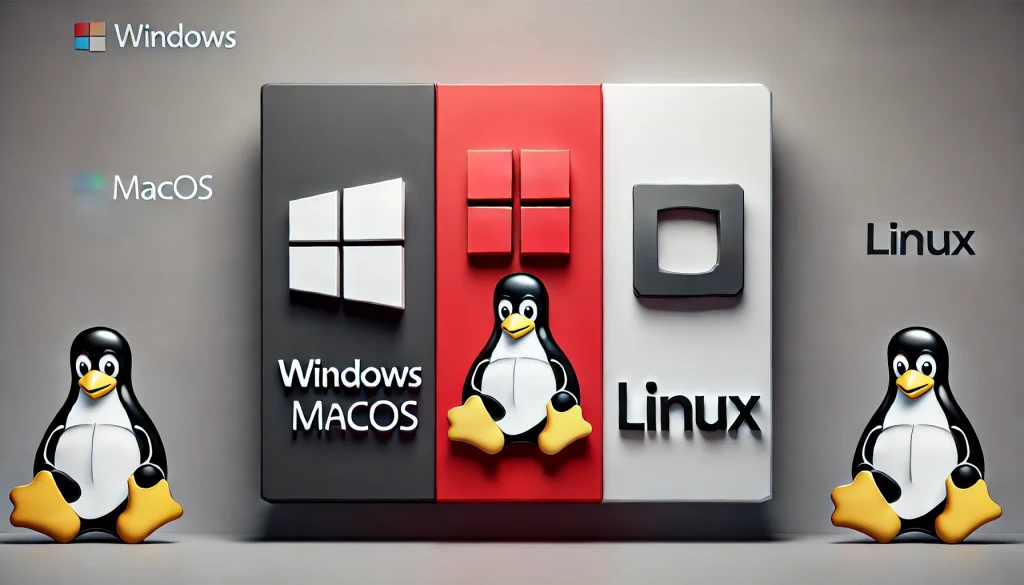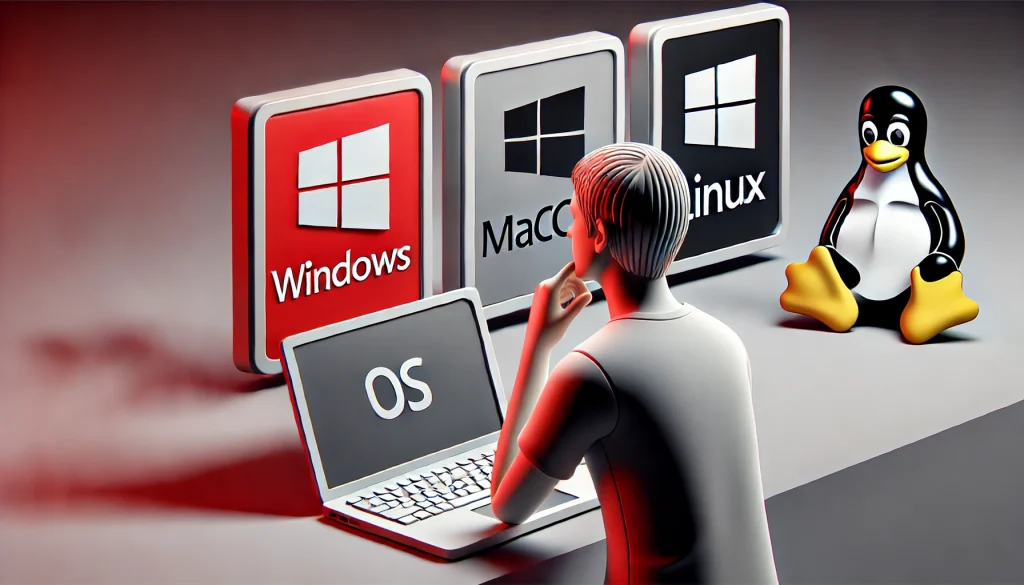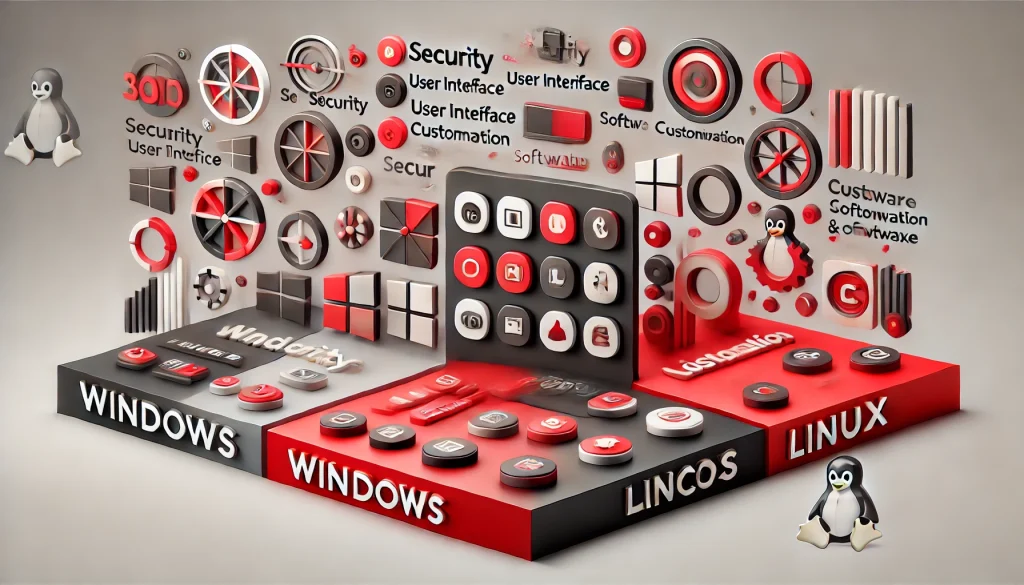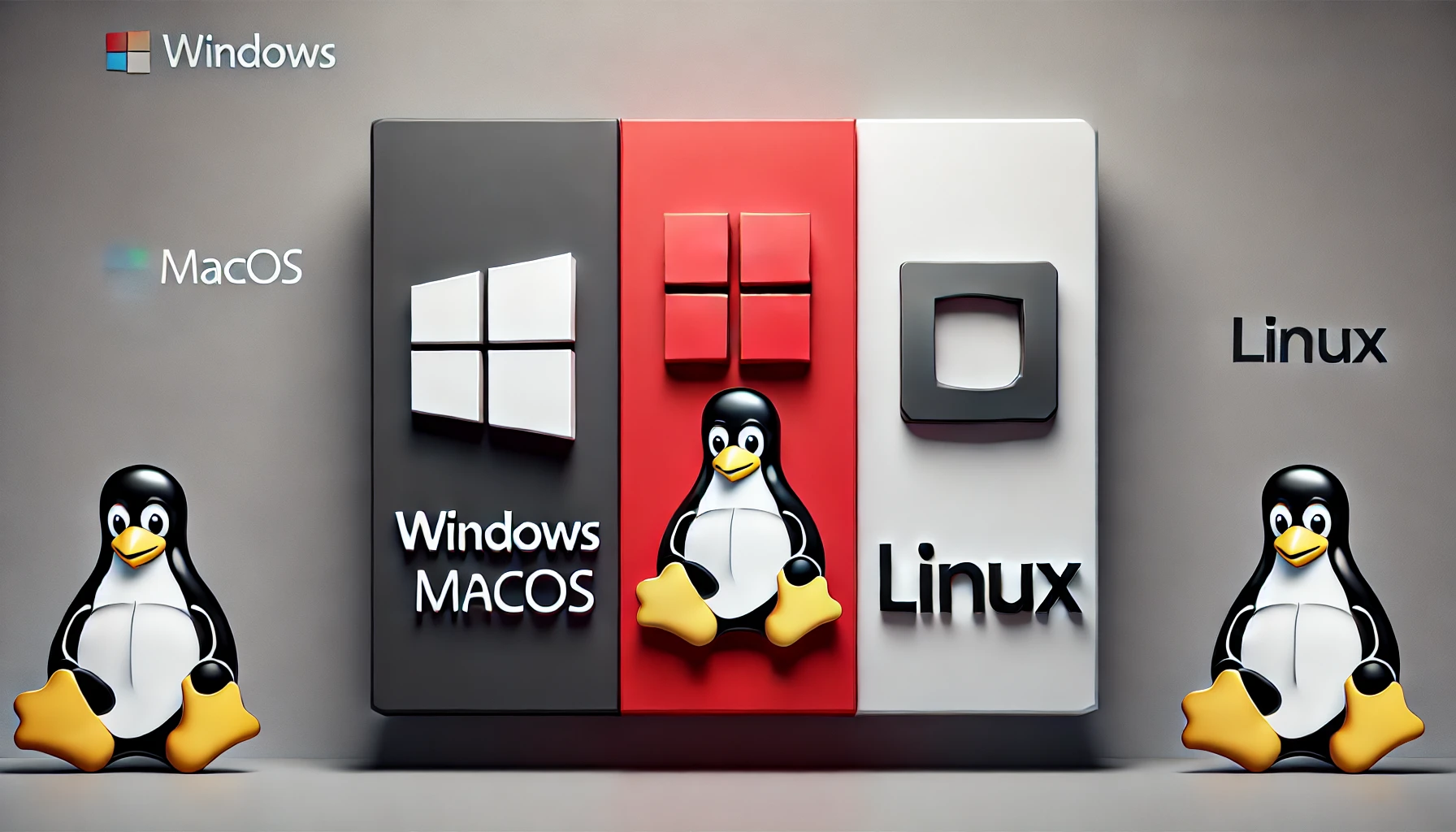
Choosing the best operating system is one of the most critical decisions for anyone who uses a computer, whether you’re a casual user, a gamer, or a professional. Each operating system (OS)—be it Windows, Mac, or Linux—has unique features, benefits, and drawbacks. Selecting the right OS can significantly improve your experience, helping you optimize your device’s performance and usability. For those involved in tech industries or gaming, this decision has even greater weight. Your OS defines your software compatibility, security options, and, ultimately, how efficiently you can complete your tasks. This guide will walk you through the process of choosing the ideal operating system based on your individual needs.
Materials or Tools Needed
- A personal computer or laptop.
- Knowledge of your specific needs (e.g., gaming, professional use, or casual use).
- Information on OS compatibility with your hardware.
For this task, no specialized tools are required beyond a basic understanding of your preferences and how you use your device. However, doing some additional research on OS requirements will be helpful before deciding.
Step-by-Step Instructions

Step 1: Define Your Primary Use Case
The first step in choosing the best operating system is identifying how you plan to use your computer. Different OSes cater to various purposes, so this will help narrow down your options. Windows is versatile, excellent for gaming and general PC use. Mac is renowned for design and media production, making it a go-to for creative professionals. Linux is highly customizable, often favored by developers and those seeking free, open-source options. Think about whether your primary focus is work, play, or both. This will help you evaluate the best OS for your personal needs.
Step 2: Compare the Pros and Cons of Each Operating System
Once you’ve identified your use case, it’s time to evaluate the strengths and weaknesses of each operating system. Windows offers extensive software compatibility and is widely supported by most applications, especially in the gaming community. However, it’s also more prone to malware. Mac systems are known for their seamless user experience, but they come at a premium price and have limited gaming capabilities. Linux, while offering freedom and customization, may not support every app or game. Take a look at the G2 Operating System comparison guide to further explore your options.
Step 3: Check Hardware Compatibility
Before finalizing your decision, make sure the operating system is compatible with your hardware. Not all computers can run every OS smoothly. For example, Mac requires proprietary Apple hardware, whereas Linux is known for its flexibility across many devices. Windows typically offers wide-ranging support for hardware, making it the go-to option for PC users. If you’re building a custom gaming rig, ensuring compatibility with Windows is essential to take full advantage of high-end gaming software and peripherals.
Step 4: Test Each Operating System (If Possible)
One of the best ways to decide is by actually testing the operating systems. If you have access to multiple devices, spend some time exploring Windows, Mac, and Linux to get a feel for their user interfaces and features. Many users appreciate the intuitiveness of Mac, while others prefer the flexibility and control that Linux offers. Windows remains the most familiar OS for the majority of users due to its extensive history in the PC market. You can even try Linux distributions through live USBs without installing them on your computer.
Step 5: Consider Security and Support Options
Security is a major factor in choosing the best operating system, especially if your work involves sensitive data. Mac and Linux are generally seen as more secure due to their Unix-based architecture, with fewer known vulnerabilities. However, Windows has stepped up its game in recent years with built-in security features like Windows Defender. It’s also important to consider the support each OS offers. Windows has a vast support network, while Mac offers customer support via Apple Care. Linux, on the other hand, relies on community-based support, which may be more challenging for non-technical users.
Do’s and Don’ts

Do’s
- Do consider your primary use case carefully. Whether you’re a gamer, professional, or casual user, your OS needs will vary.
- Do ensure your hardware is compatible with the operating system. Windows, Mac, and Linux each have different hardware requirements.
- Do research any additional software you plan to use to make sure it is supported by your chosen OS. Gaming and media software tend to work better on Windows.
- Do keep security in mind, especially if you handle sensitive data. Linux and Mac are often considered more secure than Windows.
Don’ts
- Don’t rush the decision. Switching operating systems can be time-consuming and disruptive if you change your mind later.
- Don’t overlook licensing costs. While Linux is free, Mac requires specific hardware, and Windows often comes with a licensing fee.
- Don’t assume all software is available across platforms. Double-check application compatibility, especially for professional software and games.
- Don’t ignore the user community. Linux relies heavily on its user base for troubleshooting, which can be difficult if you’re not tech-savvy.
Conclusion
Choosing the best operating system for your needs involves understanding your use case, evaluating the strengths and weaknesses of each OS, and ensuring hardware compatibility. Whether you opt for Windows for its software versatility, Mac for its seamless design, or Linux for its customizability, each OS has its own set of features tailored to specific audiences. Take your time in making this decision, as the right operating system can significantly enhance your productivity, security, and overall user experience. Explore your options and feel confident in your choice.
FAQ
What is the best operating system for gaming?
Windows is widely considered the best operating system for gaming due to its extensive software support and compatibility with most games and gaming peripherals.
Is Linux difficult to use compared to Windows or Mac?
Linux can be challenging for beginners due to its steep learning curve. However, many user-friendly distributions like Ubuntu simplify the experience.
Can I install macOS on a PC?
Technically, no. macOS is designed to work only on Apple hardware, although there are unofficial methods (like Hackintosh), but they are not supported by Apple.
Resources
- G2. Operating System Reviews.
- PCMag. Windows vs macOS vs Chrome OS vs Ubuntu Linux: Which OS Reigns Supreme?
- Software Testing Help. Top 10 Best Operating Systems.
- Tom’s Guide. Windows vs macOS: Which is Better?
- ZDNet. Windows, Mac, or Linux? We Compare the Pros and Cons.

Brijesh Gohil is the founder of Tech Brij, A popular Tech Blog which is focused on Tech tips & Buying Guides. You can follow him on Facebook, Twitter, Google + & LinkedIn.

